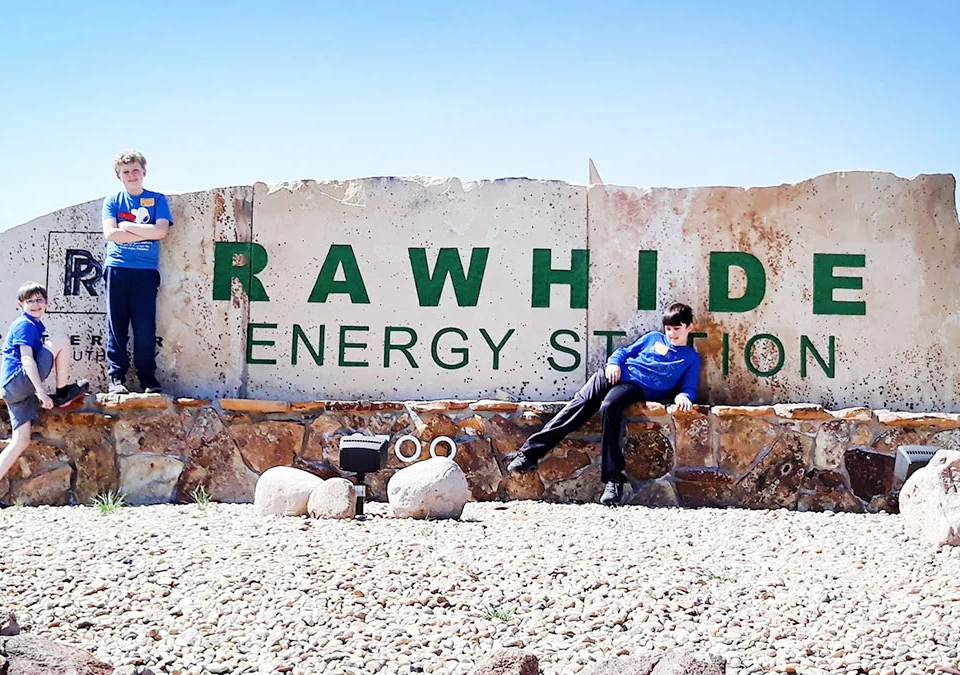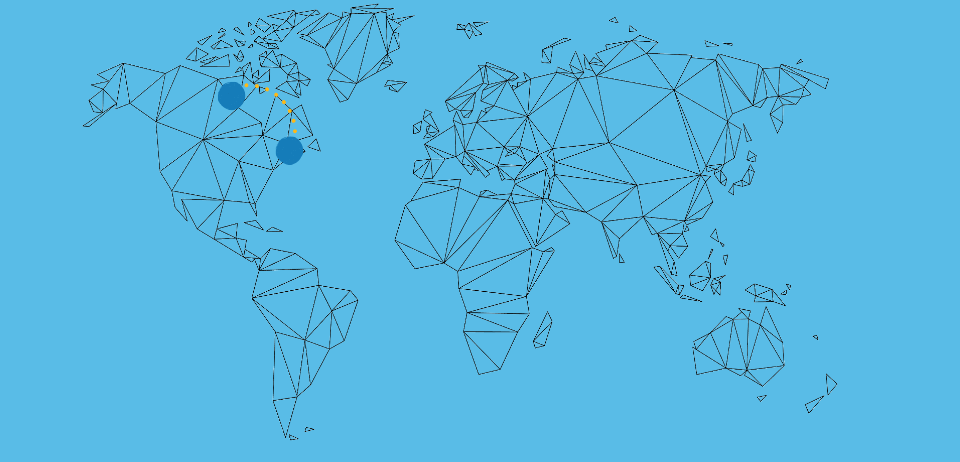Already a member? Log in to the Member Site at members.mastery.org.

Reinventing High School: Measuring What Matters Most
June 23, 2019
Higher Ed in Focus
July 10, 2019MTC Five (Summer Edition): Top Reads for Your Journeys

Education e-learning class and e-book digital technology concept with computer notebook and opening book flipping on classroom desk in school library among old stacks of textbook archive collection

MTC is recommending its top five summer reads related to the “Journeys to the Mastery Transcript Change Framework”
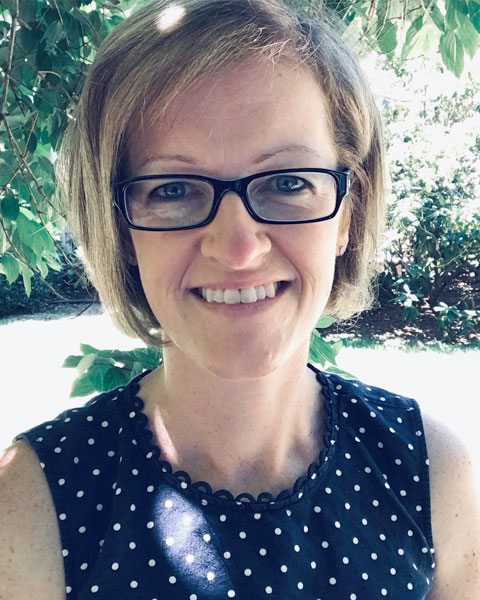
School’s out, summer’s begun, and you find yourself looking for reading materials for the beach, a lazy summer afternoon on the deck, or for that long ride to visit family this summer. We’ve got you covered! Recently, a fellow educator told me that once education enters your blood, your heart, and your soul—it no longer is your career, it is truly your vocation. As Stephen Cope shares in The Great Work of Your Life —“people actually feel happiest and most fulfilled when meeting the challenge of their dharma in the world, when bringing highly concentrated effort to some activity for which they have a true calling.” Let’s face it—as educators we can’t get enough of living our vocation, so we read and reflect on our practice even when we are on break. We hope that the suggestions below support you in deepening your practice—your vocation—to have the deepest impact on student learning.
I’ve organized these summer reads within the Journeys to the Mastery Transcript Change Framework—where the design process of change is developed through a series of important questions that denote stages of a change process that includes moving to a mastery-based, personalized learning system.
Journeys to the Mastery Transcript Change Framework
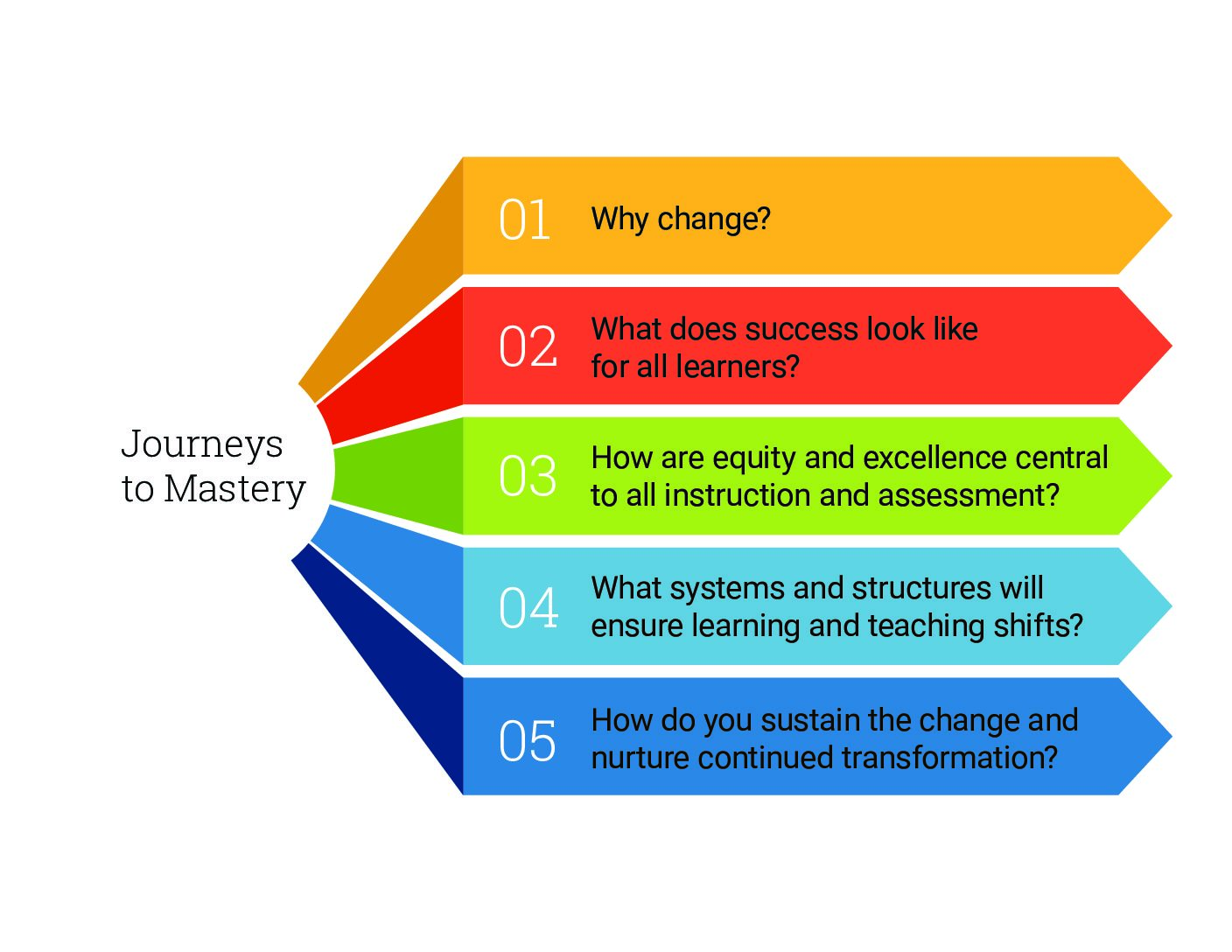
One
Why Change?
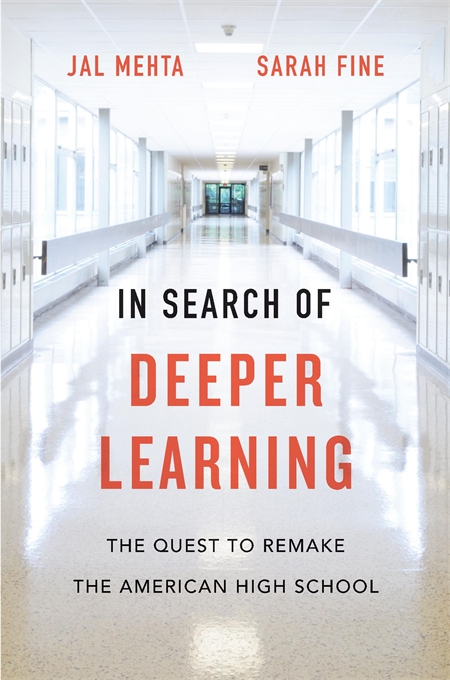
We begin with a Mastery Transcript Consortium™ (MTC) team favorite, In Search of Deeper Learning, by Jal Mehta and Sarah Fine.
For any school undertaking the change to mastery learning and the MTC Mastery Transcript, this book is a must read. Jal Mehta, Associate Professor at the Harvard Graduate School of Education, and Sarah Fine, faculty member at the High Tech High Graduate School of Education and Lecturer in Education Studies at the University of California, San Diego, sought to extensively study schools where “deeper learning” was believed to have been taking place, based on the model and messaging structures being promoted at their schools. While the researchers found some real examples of deeper learning, they found a very high degree of variability when it came to what schools desired to accomplish and what was actually occurring.
The authors’ findings reveal that:
“…deep learning accrues over time through an upward spiral of mastery, identity, and creativity…there is a cycle that integrates developing one’s knowledge and skill in a domain (mastery), becoming deeply and personally invested in that domain (identity), and trying to make or do something fresh in that domain rather than simply receiving knowledge passively (creativity). Over time, students play the ‘whole game’ at more and more complex levels, participating in the same activities but at increasing levels of sophistication.”
Additionally, the authors highlight a key finding related to the type of learning happening on the “periphery” in schools. Strong examples of deeper learning were found in the periphery—extra-curricular activities, special projects, and in elective courses—in most schools where deeper learning was the desired end, but hadn’t become institutionalized practice in classrooms. The authors conclude that schools need not look further than their after school or peripheral student activities to redesign the learning core—what’s happening within the school walls from the beginning to ending bell each day.
This book is a must read for our member schools and other school teams working through community conversations around why institutional changes are being considered, defining their learning and teaching framework, developing their vision of the graduate, and ensuring the tightest alignment between them.
Note: The authors have published summaries and key takeaways from their study in the form of Op-Eds in a variety of publications, most notably the New York Times and Los Angeles Times, in addition to other media outlets. You may also be interested in hearing a Podcast interview with Jal Mehta on Getting Smart.
Two
What does success look like for all learners?

In true Todd Rose fashion, he and Ogi Ogas break the mold and challenge decades-old institutionalized boundaries in Dark Horse: Achieving Success Through the Pursuit of Fulfillment. Highlighting the Dark Horses – those who’ve forged divergent paths to fulfillment and success – makes for a meaningful read for MTC members who, most likely on a daily basis, are struggling to determine how we deconstruct stakeholders’ fixation on all students’ following the same path, and earning success by achieving at a higher level than others on the same targets. How do we tap into our students’ true motivations without forcing them into the expected, standard steps to success? How do we expose students to the expansiveness of opportunity that lies ahead of them without constraining them with our own expectations of success? While “Dark Horses” currently occupy the place of exception in this “Age of Standardization” as Rose and Ogas call it, how do we, as educators and social change agents, create spaces where dark horses are the norm as we shift to the age of personalization? Highly recommend this easy read that is sure to spin your own wheels and significantly change your worldview on how educational culture norms itself to the standard, at the expense of kids who aren’t interested in following a linear, safe, and in some cases meaningless path to supposed success.
Three
How are equity and excellence central to all instruction and assessment?
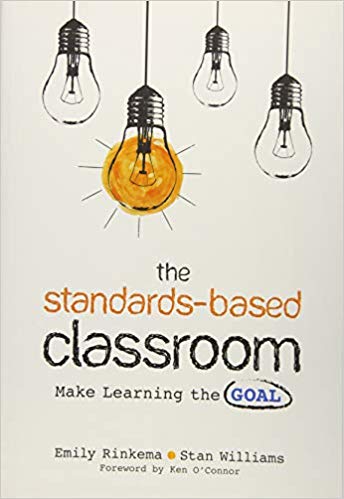
What would your reaction be if I told you there is a “how to” guide for transforming classrooms to mastery-based learning? My guess is there are many jaws dropping right now as they read the following:
The Standards-Based Classroom: Make Learning the Goal, by Emily Rinkema and Stan Williams of Champlain Valley Union High School is literally a “how to” mastery learning guide for classroom teachers!
If there was ever a book that I needed as a Principal, Assistant Superintendent for Curriculum and Instruction, and Superintendent – this was it. This is a simple yet powerful, easy-to-understand guide for making mastery learning work in classrooms. This book gets right to the heart of the matter for schools and most importantly, teachers.
- How do I design and deliver a mastery-based education to students in my classrooms? What are the essential elements?
- What are learning targets? How do I write them? What if I get them wrong? How do I assess them?
- How is a Learning Scale different than a rubric? What if I’m not sure how to write one? What is the best method for using this within the classroom?
ALL of these questions AND MORE are raised and answered, with illustrative examples, throughout this very practical, much-needed resource in the field of mastery learning. Don’t let the title fool you—this is not about “standardization” of education—this is a rich, step-by-step guide for helping teachers and leaders navigate the change to mastery learning in a meaningful way. Definitely worth the read and worthy of a faculty-wide book-study—your teachers will thank you!
Four
What systems and structures will ensure learning and teaching shifts?
Let’s Give Up the Search for ‘Best Practices’ in Grading, Guest Blog Post on Edweek by Thomas R. Guskey
The Forgotten Element of Instructional Leadership: Grading, by Thomas R. Guskey and Laura J. Link
Grading. We all know that this is one of the most challenging aspects of changing an educational system, especially high schools. The traditional grading system has become deeply embedded in our culture, in our psyche, and in the way we view each other as humans and the environment within which students are trying to find their way to success. Think about how many times an adult has described their experience in school – “I was a solid B student – I could never break into the “A” category”, or “I did all my work, I received all A’s, but I never really understood the relevance of what I was learning until I got to college”; you’ve heard some variation on these statements before in many adult situations. Our society and the institution of education has allowed the convention of grading to drive us as humans to define who we are by the marks we earned in school.
Thomas Guskey, (along with co-author Laura J. Link) a long-time researcher in the field of mastery learning and grading, reminds us in these two articles that changing this cultural phenomenon requires instructional leadership. Long left to their own devices without any formal training in how to understand, develop, and implement effective grading practices due to a lack of leadership in grading policy and practice, teachers have done their best to navigate this practice in their classrooms from the examples they experienced in their own learning. In order to disrupt the damaging practices that have become the status quo in many schools, Guskey suggests leaders turn to engaging stakeholders – namely faculty – in the critical professional learning experiences necessary to shift the conversation and practices related to grading, in addition to forming policies that reimagine the role of grading in schools.
As a member school, you may find yourself in this critical transitional space between wanting to address grading but wondering where to start. Guskey provides a whole host of resources in these articles to support schools on their journey. Visit his website for additional resources.
Five
How do you sustain the change and nurture continued transformation?
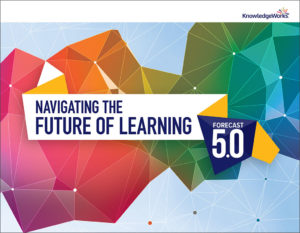
In Navigating the Future of Learning, KnowledgeWorks forecast on the future of learning, discover how current trends could impact learning 10 years from now.If you’ve come to the point in your leadership for change journey where you find yourself settling into the groove of the policies and practices you’ve developed, refining the components that may need attention and tweaks but for the most part are serving students better than before, and the tide has shifted to a new way of learning and teaching, you may want to take a look at this next resource from Knowledgeworks: Navigating the Future of Learning: A Strategy Guide. I was fortunate in my previous role as Superintendent of the Windsor Locks Public Schools to have the support of Knowledgeworks’ Katherine Prince and Katie King in reimagining our vision for students with community stakeholders a few years after we began our transformation to Mastery Learning. This guide is a critical read to ensure that your school’s change strategy 2.0 and beyond is informed with the latest and most salient forecasted societal, economic, social, technological, and cultural trends.
Organized by the 5 Opportunities for Building Effective Strategies, the document provides critical insight into the following:
- Civic Engagement for the Smart Age
- A Learning Lifestyle
- Systemic Interdependence
- Smart Technologies for All
- Many Selves, Many Stories
As I read this document, I found myself thinking about all of the conversations I’ve had over the last year and the opportunities to learn from MTC member schools. In synthesizing these conversations with the “5 Opportunities” outlined above, I realize that MTC schools are already on the forefront of this thinking. We know the challenges we face in the single-subject, one-size fits all arena of learning and teaching. We know the work that goes into incorporating these key concepts and skills as we design Mastery Credits for our schools. And, we know that it takes courageous, distributive, and situational leadership skills to transition our learning cultures and environments to emulate the interrelatedness of these concepts. While the task ahead seems daunting, we are grateful to organizations like Knowledgeworks (and so many others out there) who provide thought leadership for schools who are on the ground, making this work for all kids.
We hope this summer reading list supports your efforts in pathfinding to the Mastery Transcript.
Happy Reading!

